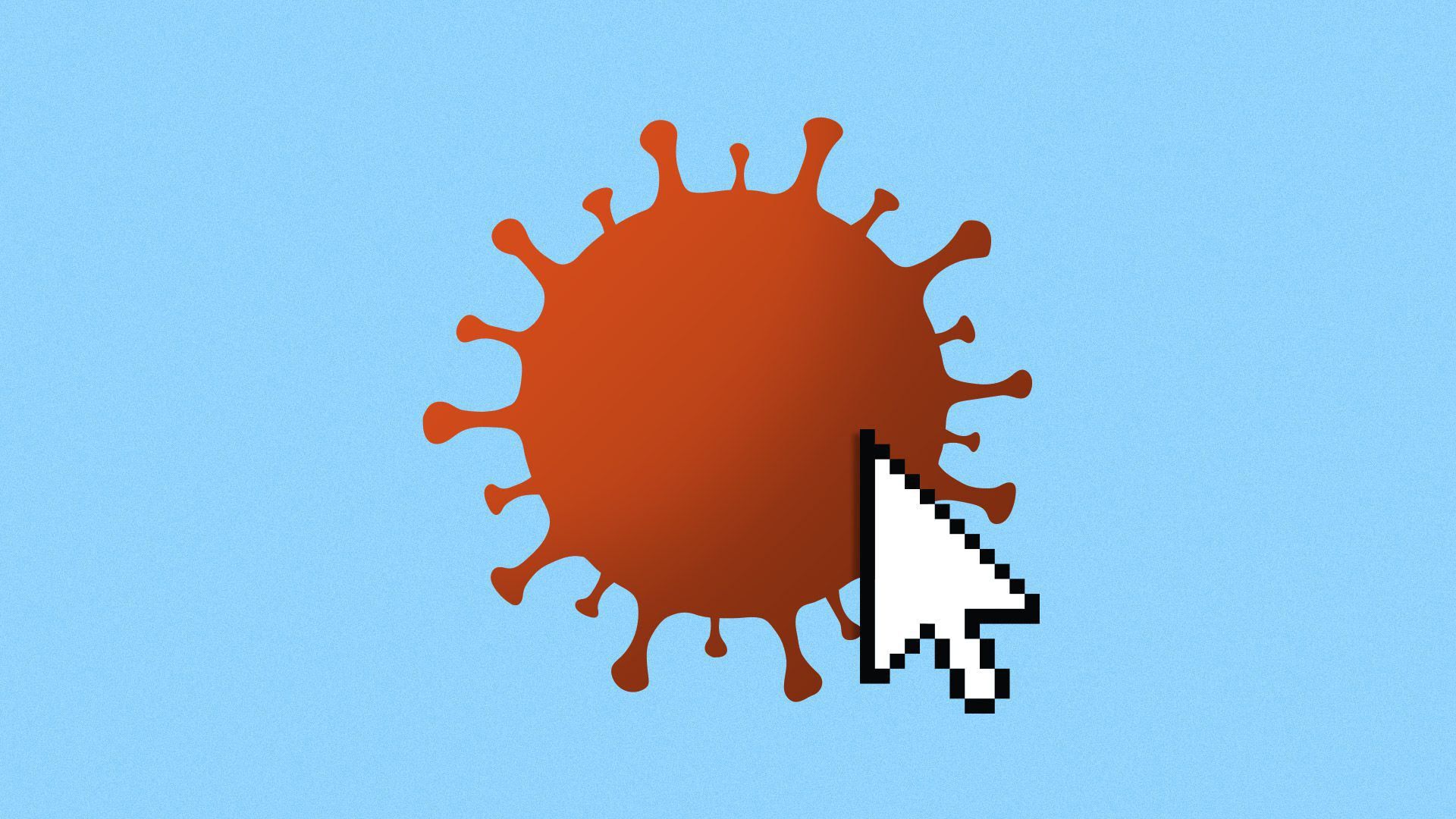Coronavirus misinformation is a tricky foe for tech
Add Axios as your preferred source to
see more of our stories on Google.

Illustration: Eniola Odetunde/Axios
The major online platforms' long struggle to cope with floods of misinformation has reached a new pitch of urgency during the coronavirus pandemic — just as the fight has become harder than ever.
Driving the news: In the most recent controversy, One America News Network — a small rival to Fox News that is President Trump's current favorite — aired a segment Friday, also posted on YouTube, that makes conspiracy-theory-style connections between China, the "deep state," George Soros, Bill Gates, and the Clintons.
The big picture: Although Facebook, YouTube and Twitter have gotten better at spotting and stopping coordinated information warfare (disinformation), they still struggle with false claims spread by people who sincerely believe them (misinformation).
- When the pandemic arrived, all three pledged to move against false coronavirus-related postings, since lives are on the line.
- For example, YouTube has taken down thousands of videos for spreading misinformation, product chief Neal Mohan told Axios last month. Twitter and Facebook have also taken action in some — but not all — cases.
- YouTube and Facebook have fully taken down clips from a documentary titled "Plandemic" that makes some claims similar to the OANN segment, citing violations of their coronavirus misinformation policies.
Yes, but: Two factors have thrown a wrench into the platforms' efforts to stem the coronavirus misinformation tide.
- It's a new disease and there's a lot we don't actually know for sure, making it hard for content moderators to draw clear distinctions between what's true and what's not.
- Enough business and political leaders have lined up in opposition to the scientific consensus that fringe positions have moved into the mainstream — without supporting evidence but with loud voices amplifying them.
Details: Three recent examples that have challenged the platforms' policy, each with different outcomes:
1. The One America News Network segment was titled "Deep State, China use COVID-19 for population control: Soros, Clintons, Gates suspected of Beijing-WHO cover-up to seize COVID-19 cure, undo U.S. Constitution."
- Some have questioned how YouTube is allowing the segment to remain up given its misinformation policies.
- YouTube told Axios it has reviewed the video and deemed it “borderline content” that doesn’t meet the bar for outright removal but won’t appear in search or recommendations.
2. President Trump's discussion at an April 23 press conference about whether it might make sense to fight the virus by using disinfectant or UV light on patients posed thorny challenges for the social media platforms.
- Twitter, for example, has banned claims about unproven or potentially harmful cures.
- However, it declined to take down content that included Trump's remarks, saying they weren't definitive.
3. Brazilian President Jair Bolsonaro has repeatedly spoken out in opposition to accepted health guidelines — even those from Brazilian authorities — regarding social distancing and other measures. In that case, Facebook and YouTube removed some of Bolsonaro's videos.
The bottom line: Prominent people are spreading dangerous misinformation about the virus. And it's having real-world impact.
- The most dramatic example of that impact was a rise in people calling poison control centers after ingesting household cleaners.
- But far larger numbers are being exposed to arguments that the virus is a hoax, or promulgated by Bill Gates.
Go deeper:
